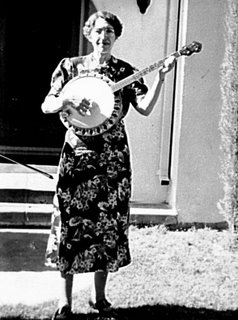Liturgical music under evaluation
 List will try to put Catholics on same page of hymnal
List will try to put Catholics on same page of hymnalTuesday, November 21, 2006
by Ann Rodgers Copyright © 2006 AP Wire
BALTIMORE -- Although their words about sex grabbed the headlines at their meeting last week, the nation's Catholic bishops also spent some time on singing.
Acting under Vatican orders, they approved a plan to check the theological orthodoxy of all songs sung at Mass.
They also agreed to compile a core repertoire of 60 to 100 songs that would be included in all Catholic hymnals, along with a variety of other songs approved by individual bishops. "Music is an essential ingredient in a Mass celebration.
I see it as extremely important in catechizing our people," said Bishop Donald Trautman, of Erie, Pa., chairman of the committee in charge of the project. He said the bishops would consult with music experts in choosing the core songs.
The focus is on choosing doctrinally sound lyrics. While they worked to get Catholics to sing the same songs, the bishops were not always in tune with one another. Behind their lopsided votes on hymns and other issues lay sharp exchanges, as those who wanted strict enforcement challenged those who favored a more welcoming approach to Catholics who don't follow church teaching.
In the music debate, some bishops wanted a central office to create the list of approved hymns. Instead, the endorsed plan, which has to be approved by the Vatican, leaves it to each bishop to approve songs published in his diocese. Cardinal Sean O'Malley, of Boston, would have preferred a list of approved songs.
"The only way we are going to have real community participation in the liturgy is if we have a corpus of hymns that most of our people know by heart," he said. The core repertoire is supposed to serve that purpose. Trautman suggested "Holy God We Praise Thy Name" and "Silent Night" as two classics that would certainly be included, but he would not speculate beyond that.
There are quarrels in the church between those who prefer contemporary music and those who advocate time-honored hymns and chant. Some traditionalists complain that modern songs are theologically and musically insipid.

8 Comments:
I think you are a secret banjo-o-phile .
I find a similarity to a lyre, a musical instrument of ancient Greece consisting of a soundbox made typically from a turtle shell, with two curved arms connected by a yoke from which strings are stretched to the body, used esp. to accompany singing and recitation.
Psalms - Chapter 81:1-11
For the leader; "upon the gittith." Of Asaph.
Sing joyfully to God our strength; shout in triumph to the God of Jacob!
Take up a melody, sound the timbrel, the sweet-sounding harp and lyre.
Blow the trumpet at the new moon, at the full moon, on our solemn feast.
For this is a law in Israel, an edict of the God of Jacob,
Who made it a decree for Joseph when he came out of the land of Egypt. II I hear a new oracle:
"I relieved their shoulders of the burden; their hands put down the basket.
In distress you called and I rescued you; unseen, I spoke to you in thunder; At the waters of Meribah I tested you and said: Selah
'Listen, my people, I give you warning! If only you will obey me, Israel!
There must be no foreign god among you; you must not worship an alien god.
I, the LORD, am your God
(Note)
1 [Psalm 81] At a pilgrimage feast, probably harvest in the fall, the people assemble in the temple in accord with the Sinai ordinances (Psalm 81:2-6). They hear a divine word (mediated by a temple speaker) telling how God rescued them from slavery in Egypt (Psalm 81:7-9), gave them the fundamental commandment of fidelity (Psalm 81:9-11), which would bring punishment if they refused to obey (Psalm 81:12-13). But if Israel repents, God will be with them once again, bestowing protection and fertility (Psalm 81:14-16).--NAB
In your response to your comment, I am curious to know if the lyre to which you refer is the kithara lyre or the lyra lyre.
Of course you were referencing the Psalms. Thank you.
At Mass, the kithara, when at the foot of the altar I say:
Confitebor tibi in cithara, Deus, Deus meus: quare tristis es anima mea, et quare conturbas me?
I shall yet praise Thee upon the harp, O God, my God. Why art thou sad, my soul, and why art thou downcast?
In Greece after too much ouzo, the lyra, or in Germany after too much beer, the glockenspiel.
Perhaps you should not travel.
Carpe Cerevisi - Seize the beer!
Funny!
Seize the glockenspeil.
Post a Comment
<< Home